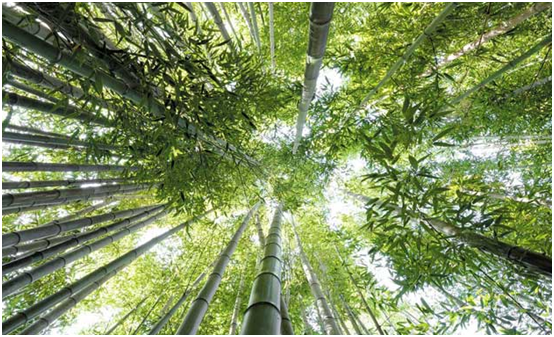Why is the Bamboo Industry Important?
The bamboo industry is a sector that involves the cultivation, processing, and utilization of bamboo resources and has been experiencing significant development in recent years. According to statistics, the output of China's bamboo industry surged from around 82.1 billion yuan in 2010 to 321.8 billion yuan in 2020. The number is expected to exceed a trillion yuan by 2035.
There are several factors that make the bamboo industry more and more important.
1. Economic Aspects
The economic benefits of developing bamboo industry are multifaceted. As bamboo can be harvested sustainably and quickly, it provides a reliable source of income for farmers and artisans. This can lead to economic development in rural areas where bamboo is cultivated.
Bamboo products have a growing market globally. Many countries import bamboo products such as furniture, flooring, and handicrafts, providing an important source of foreign exchange earnings for bamboo-producing countries. Through advanced processing technologies, bamboo can be made into high-value-added products, such as engineered bamboo materials used in construction and high-quality bamboo textiles, which can increase the economic value of bamboo resources.

2. Environmental Benefits
One of the most significant reasons for bamboo development is their minimal environmental footprint. Bamboo is a highly renewable plant. It has a rapid growth rate and can be harvested regularly without causing significant damage to the ecosystem. Compared to traditional wood resources that take a long time to grow, bamboo provides a sustainable alternative for various applications. During its growth, bamboo absorbs a large amount of carbon dioxide from the atmosphere, helping to mitigate climate change. It acts as an important carbon sink, contributing to the reduction of greenhouse gas emissions. It also helps to maintain water balance in the ecosystem, reducing the risk of floods and droughts.

3. Product Applications
Bamboo has a wide range of applications due to its unique properties. Bamboo is strong and durable, making it suitable for use as scaffolding, decking, cladding, flooring, and even in the construction of entire structures. Bamboo-based building materials are cost-effective and have good insulation properties.
Bamboo fiber can be extracted and used to make fabrics for clothing, beddings, and towels. Bamboo textiles are soft, breathable, and have antibacterial properties. Bamboo is also used to make handicrafts, musical instruments, paper pulp, charcoal, and even biofuels.

4. Cultural Significance
Bamboo has a deep-rooted cultural connotation in many countries and regions. In Asian culture, Bamboo's long life makes it a Chinese symbol of longevity, while in India it is a symbol of friendship. As bamboo has some features such as uprightness, tenacity and hollow heart, people endow bamboo with integrity, elegance and plainness. The bamboo product is widely used in traditional crafts, artworks, and architecture, representing an important part of cultural heritage.

The development of the bamboo industry provides opportunities for local people to participate in economic activities, improve their living standards, and enhance the cohesion of the community. It is also a good way to reduce plastic pollution, cope with climate change, and advance global green development.
